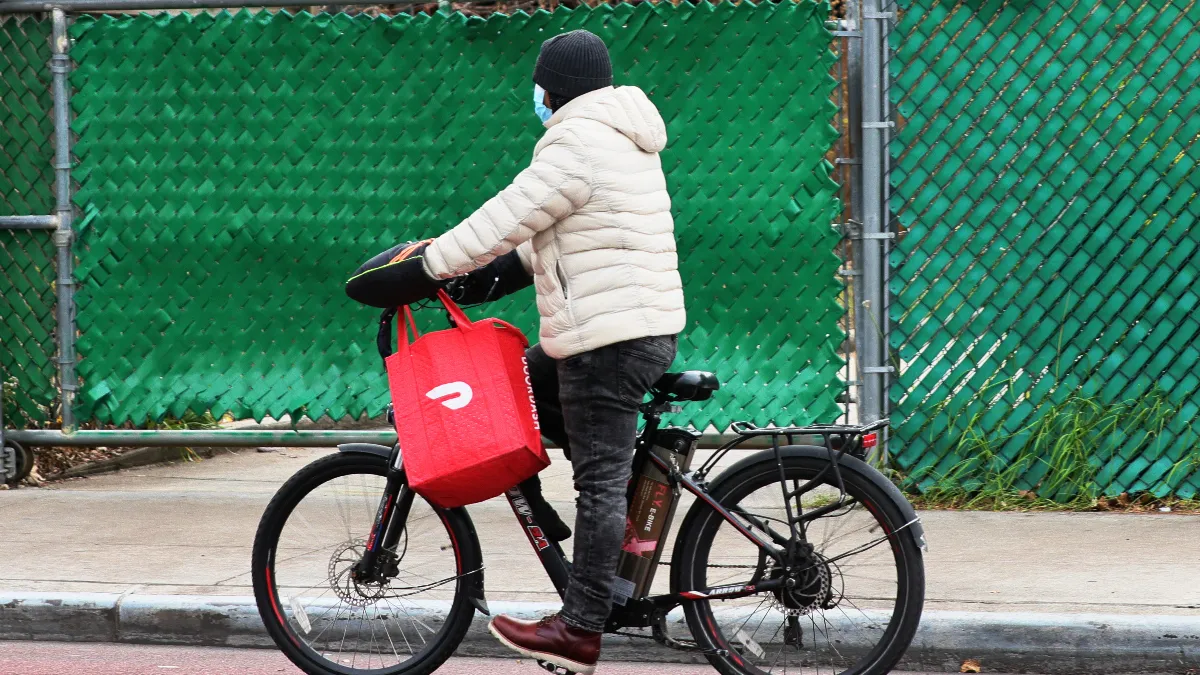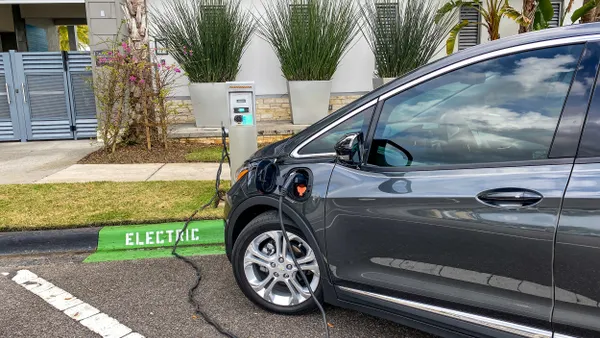California’s Court of Appeal (District 1, Division 4) sided with delivery and rideshare app companies in preserving independent contractor status for gig workers in a ruling published Monday.
The ruling overturned most of a lower court’s 2021 ruling that held Prop 22 to be unconstitutional, handing a political victory to rideshare and delivery companies. But it didn’t entirely side with the platforms that backed Prop 22, the state law passed by referendum in 2020 to overturn AB 5, a bill that would have classified most gig workers as employees. AB 5’s status is still challenged almost four years after its passage.
The court struck down a portion of Prop 22, 7465(c)(3), that would have made it virtually impossible for California to regulate working conditions for app-based workers, as well as section 7465(c)(4), which made it virtually impossible for gig workers to bargain collectively or organize. These two sections barred future amendments to the law in a manner that, the court found, infringed on the powers of the legislature and courts.
The court also expressed concern that those sections, which do not directly refer to collective bargaining but regulated it nonetheless, went against the spirit of California’s referendum process.
“Treating section 7465(c)(4)’s ostensibly procedural regulation of the amendment process as equivalent to a direct statement that app-based drivers cannot collectively bargain would encourage gamesmanship and reward initiative proponents for drafting confusing, or even outright misleading, initiatives,” the court found.
Opponents of Prop 22, including the Service Employees International Union, expressed dismay that the Court of Appeal overturned the lower court’s decision to throw out the independent contractor status.
“We are grateful that the California Court of Appeal has affirmed that companies like Uber, Lyft, Doordash and Instacart can’t keep drivers from joining together in a union,” Mike Robinson, a plaintiff and rideshare driver for Uber and Lyft, said in an SEIU press release emailed to Restaurant Dive. “We still believe Prop 22 — in its entirety — is an unconstitutional attack on our basic rights.”
David Green, executive board member of SEIU California and SEIU 721 president, hinted but did not confirm the union would continue appealing the case.
“SEIU will continue to stand alongside drivers in the fight to prevent democracy from being sold to the highest spender,” Green said.
Major delivery companies expressed satisfaction with the court’s ruling.
“Today’s decision is a huge victory,” Elizabeth Jarvis-Shean, vice president of communications and policy at DoorDash, wrote in a statement emailed to Restaurant Dive. “The core of Prop 22 has been upheld as the law of the land in California.”
Grubhub struck a similarly upbeat note. A spokesperson called the ruling “a win for our delivery partners across California.”
Uber did not immediately respond to a request for comment.
The ruling comes as the state faces another referendum battle between major employers and organized labor, this time over The FAST Recovery Act (AB 257), a law that would establish a council to regulate pay and working conditions at major fast food chains.
According to a study by the National Equity Atlas, most workers under Prop 22 earn only about $6.20 an hour in take-home pay, as gig companies are not required to pay for wait times, expenses, unemployment insurance, workers comp or paid leave that would be extended to drivers if they were classified as workers.
That study was carried out in part with the cooperation of Rideshare Drivers United members and found that expenses and the money needed to pay for benefits granted to employees ate up the vast majority of a worker’s estimated gross hourly pay of $26.30 in earnings.
A University of California Riverside School of Business report commissioned by the coalition that funded Prop 22, which was funded by major rideshare and delivery companies, claimed the law had raised wages. The report claims hourly pay for gig economy drivers, excluding tips, was about $25.17 an hour at the end of 2021. Rather than itemize the expenses paid by drivers, as the NEA did, the UC Riverside report estimated driver expenses as 10% of hourly earnings.













